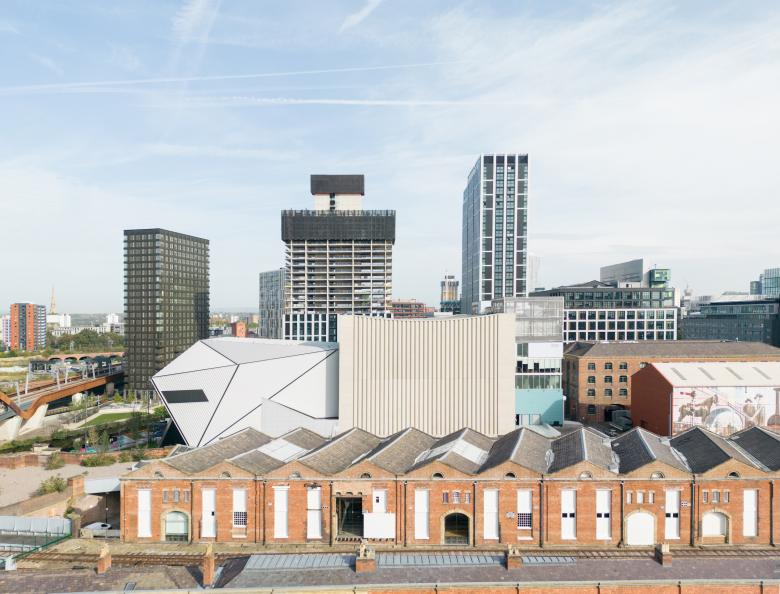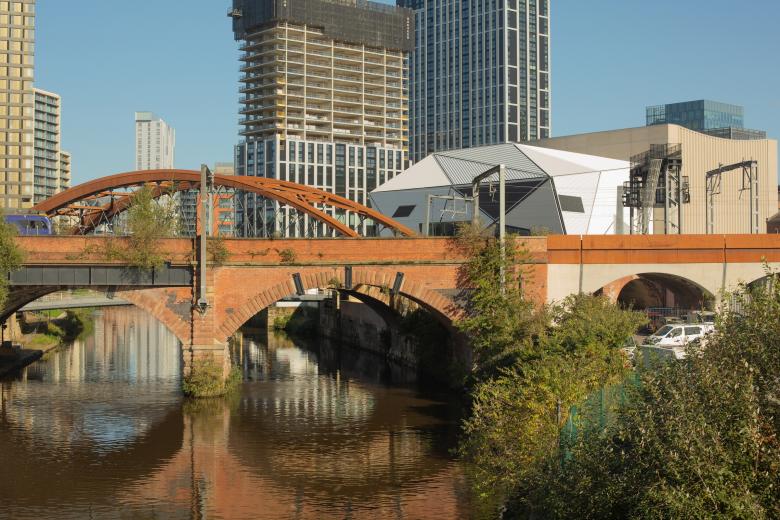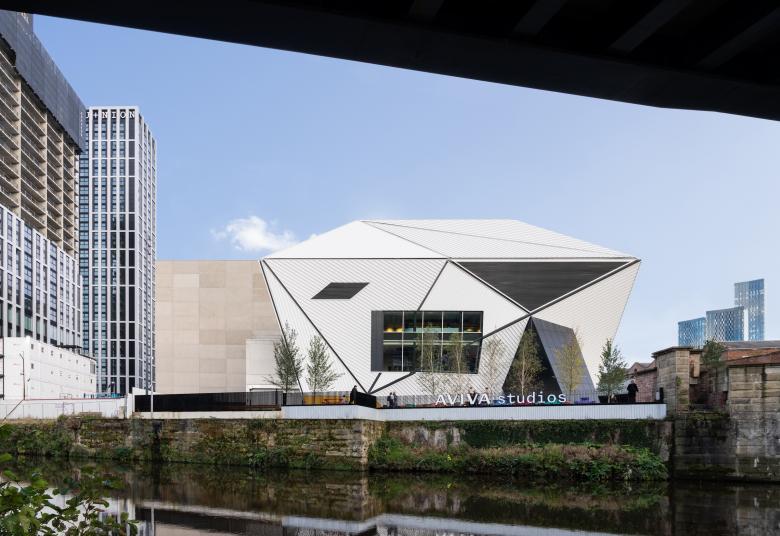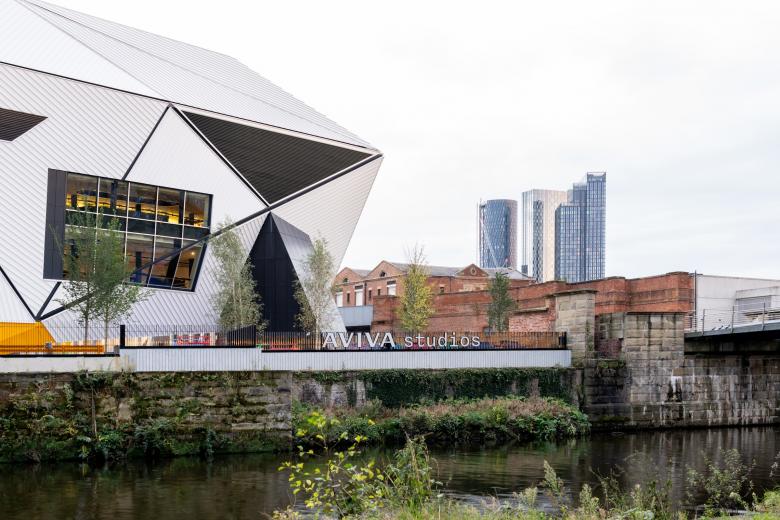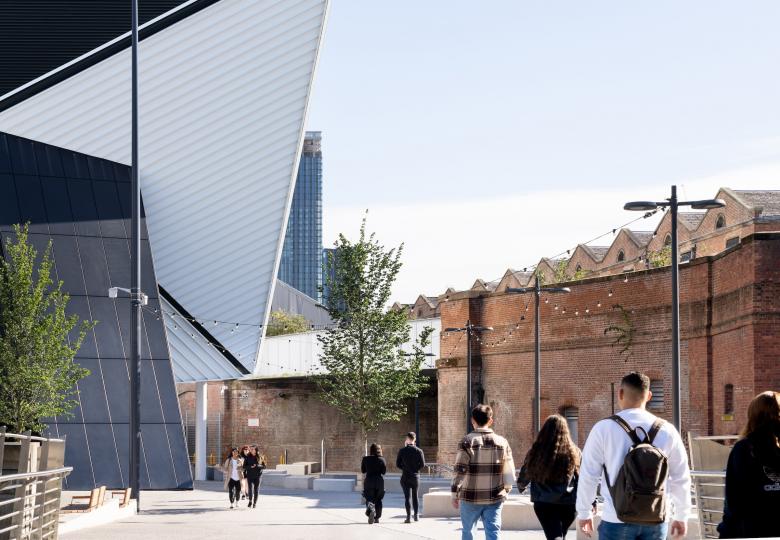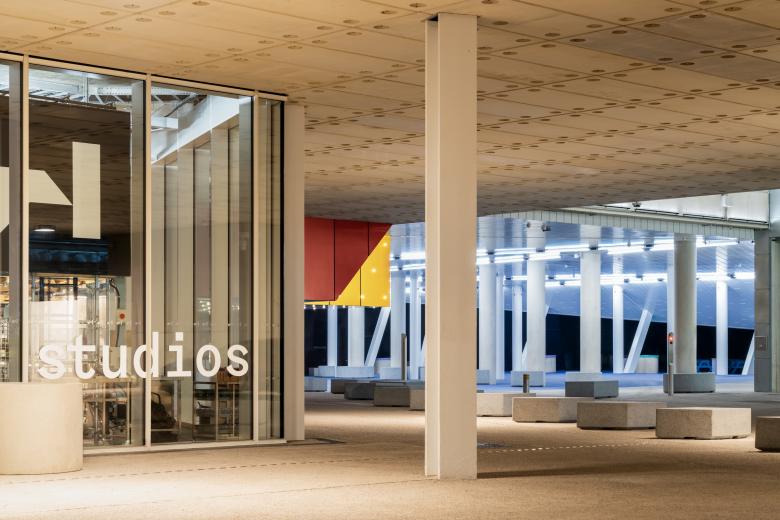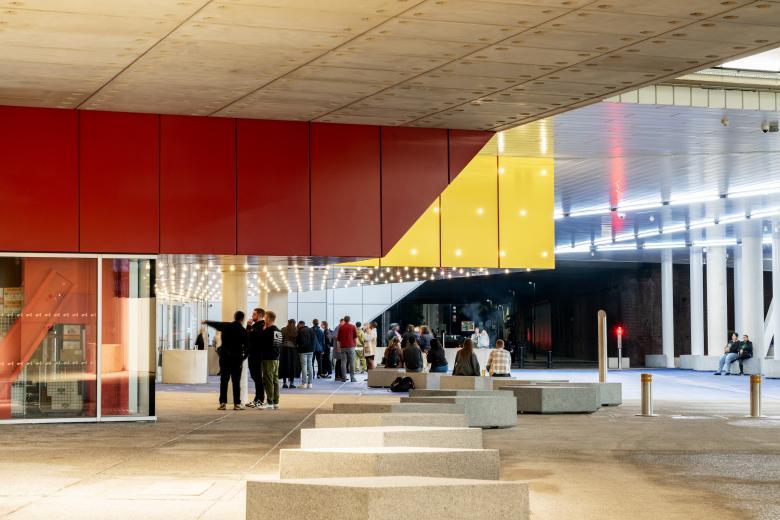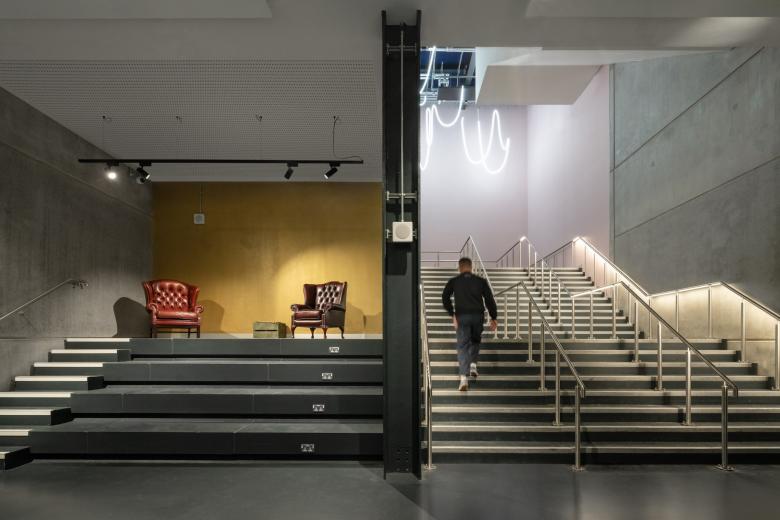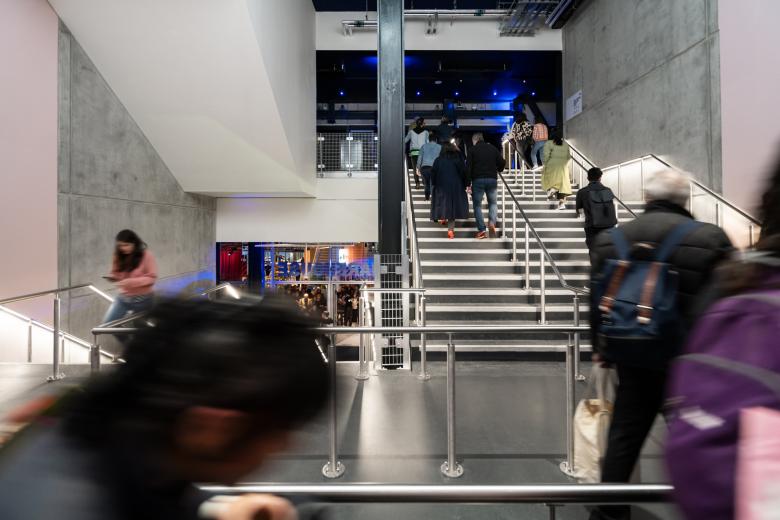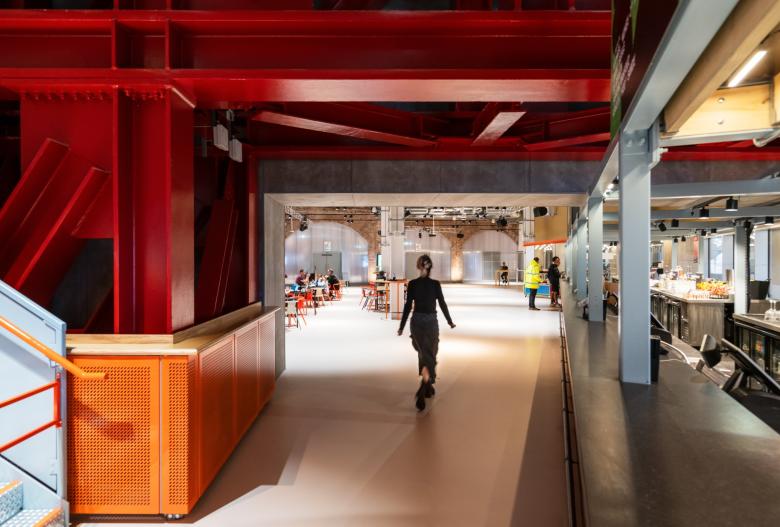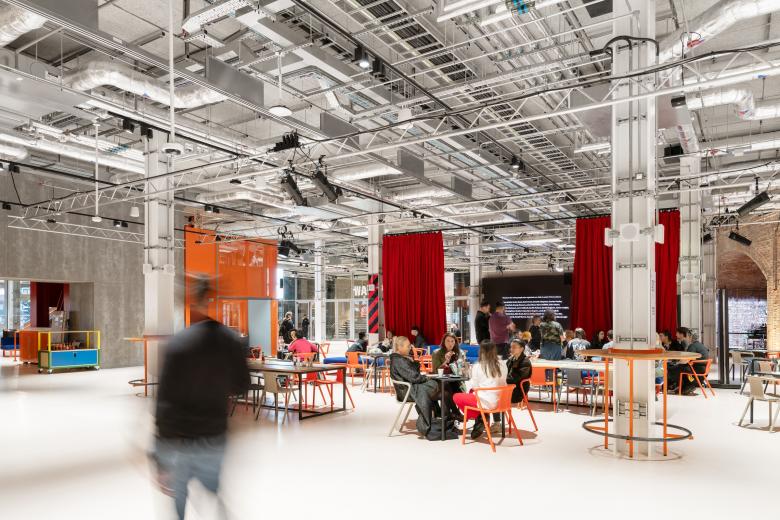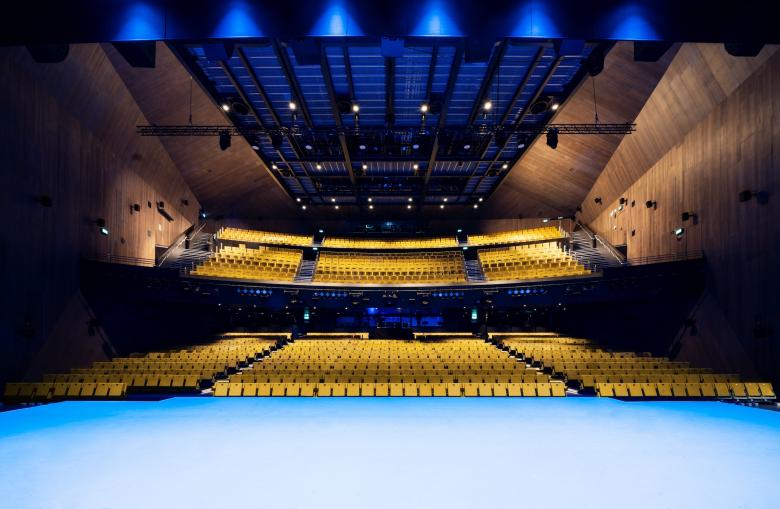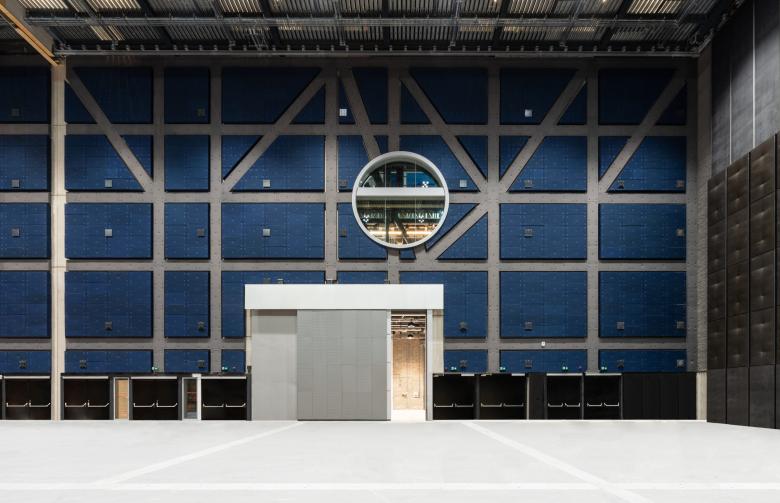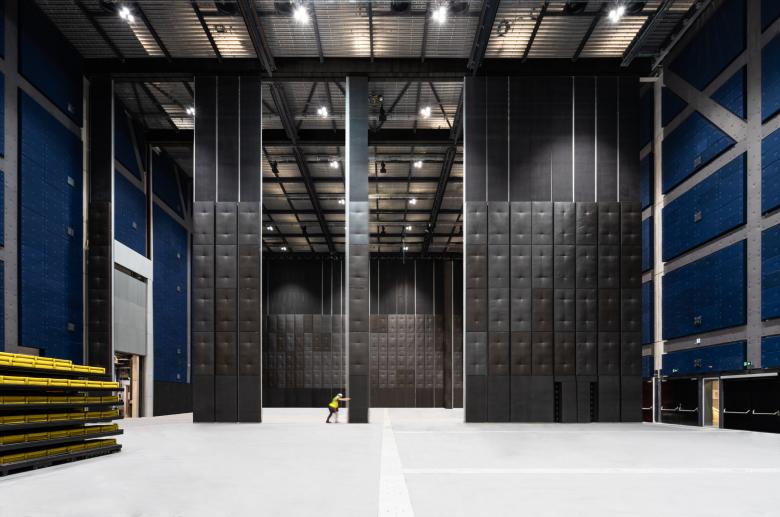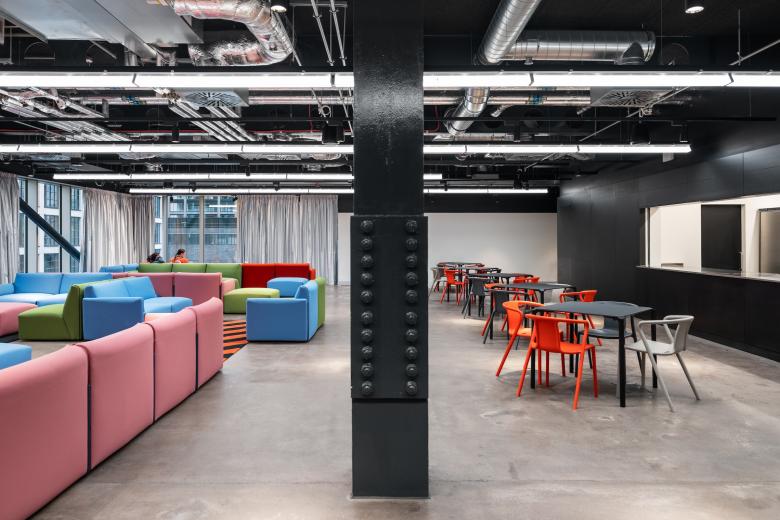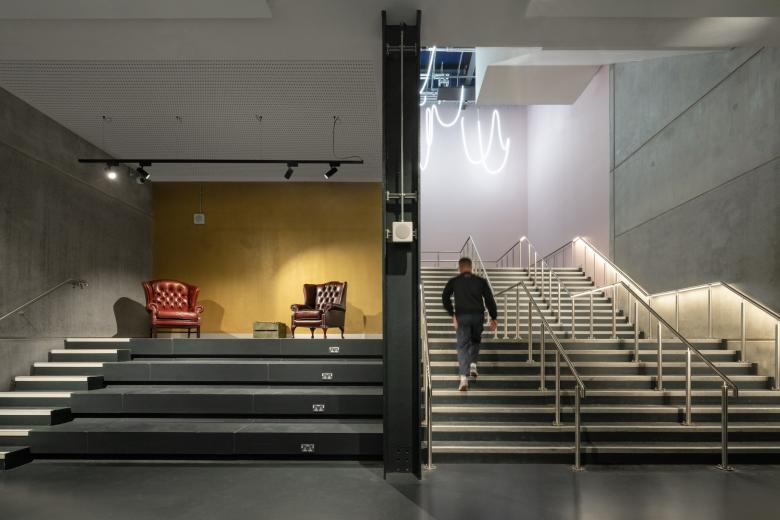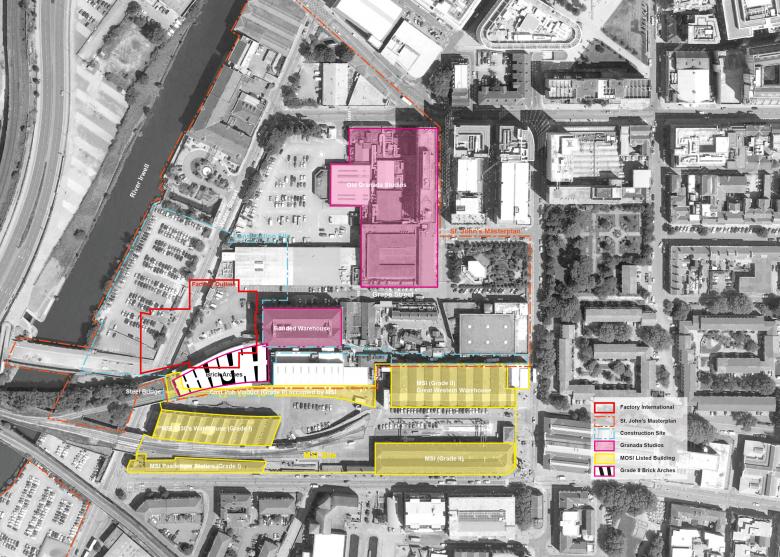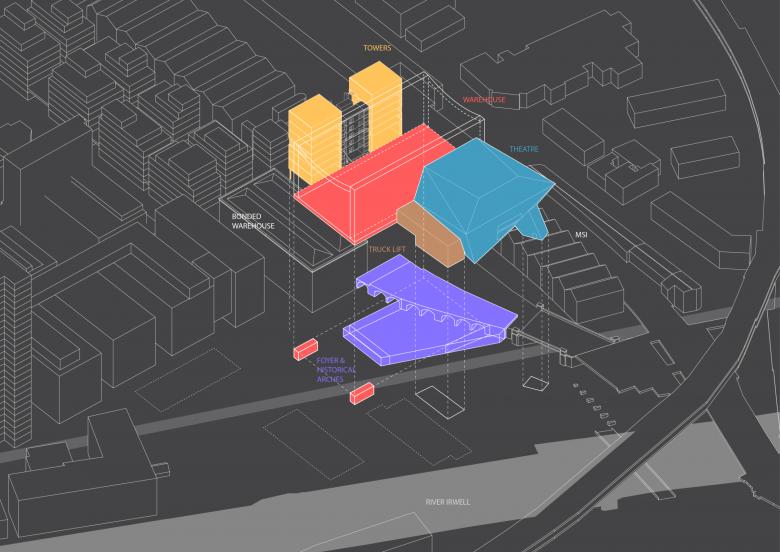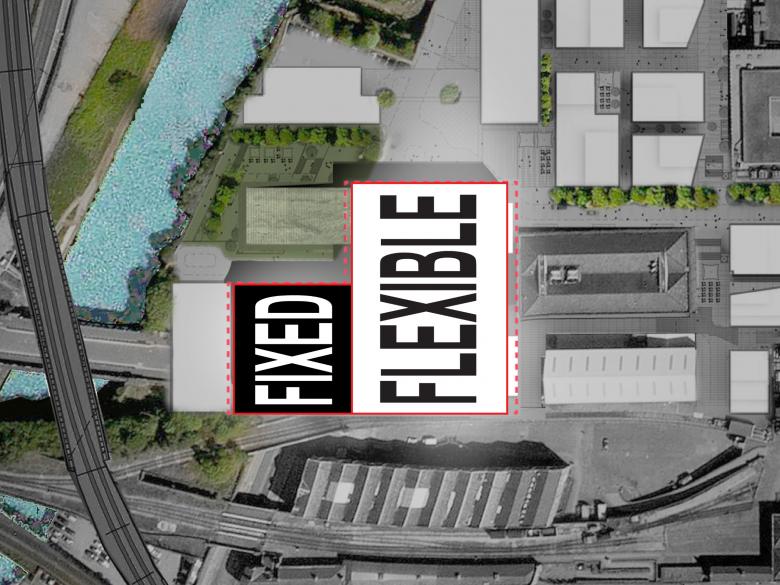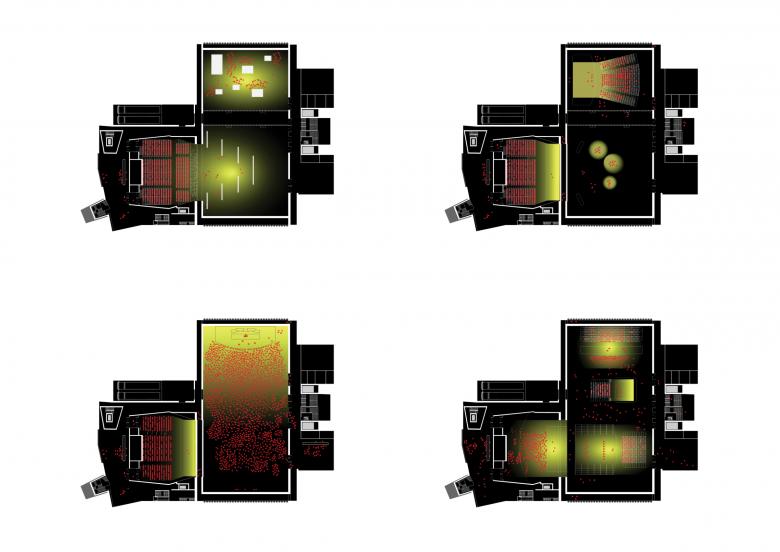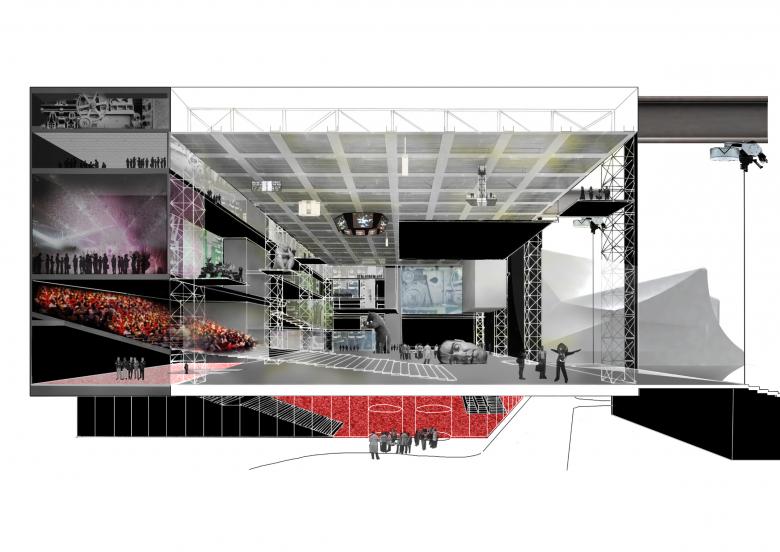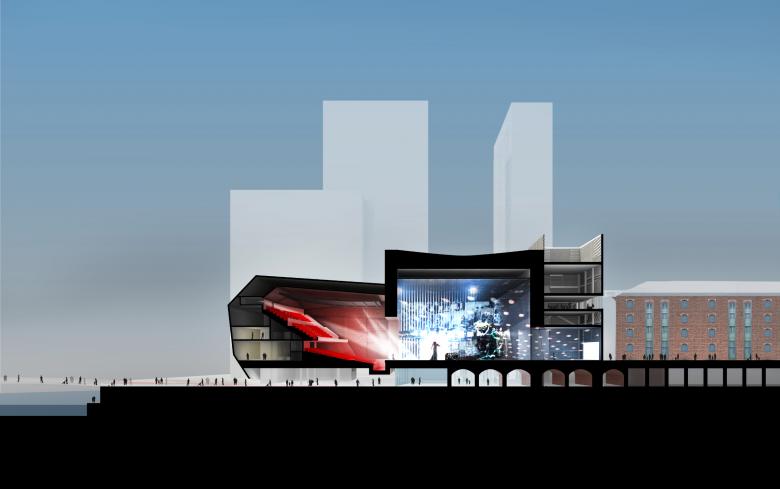Aviva Studios – Factory International
Torna alla Lista di Progetti- Sede
- Manchester, Great Britain
- Anno
- 2023
- Cliente
- Manchester City Council and Factory International (Manchester International Festival)
- Team
- Ellen van Loon, Rem Koolhaas, Carol Patterson, Gary Owen, Jonathan Telkamp, Tanner Merkeley, Jacopo Bellina, Paloma Bule, Anita Ernődi, Marc-Achille Filhol, Benedetta Gatti, Aris Gkitzias, Michalis Hadjistyllis, Jason Houssein, Lisa Huang, Aleksandr Joksimovic, Hans Larsson, Thijs van der Lely, Emma Lubbers, Dirk van der Meij, Felix Morczinek, Tom Paling, Maria Aller Rey, Mario Rodriguez, Helena Rong, Won Ryu, Saskia Simon, Lukasz Skalec, Wael Sleiman, Iason Stathatos, Koen Stockbroekx, Shinji Takagi, Nicola Vitale, Frederike Werner, Tom Xia, Yushang Zhang
- Technical Architects
- Allies and Morrison, Ryder Architecture
- Construction Partners
- Laing O’Rourke
- Structure and Civil Engineers
- Buro Happold, BDP
- Acoustic Engineer
- Level Acoustics
- Fire Engineer
- WSP
- Stage Engineering
- Charcoal Blue
- Vertical Transportation
- Pearson Consult
- Landscape Design
- Planit.IE
- IT
- Strata
- Transport Planning
- Vectos
- Services Engineer
- Buro Happold
- FF&E
- Ben Kelly and Brinkworth
- Graphic Design
- Peter Saville and NORTH Design
Since it was launched in 2007, Manchester International Festival has taken place in existing buildings both large and small throughout the city. But spaces with the qualities needed by the art pieces commissioned by the Festival are fewer and fewer, disappearing amid Manchester’s fast-paced redevelopment into England’s new economic hub. In 2015 Manchester City Council launched an architecture competition for a new kind of art venue for Manchester International Festival (MIF), capable of hosting both art performances and exhibitions, separately or simultaneously.
MIF’s new home embraces Manchester’s industrial and creative past. Its facades of concrete and corrugated metal stand out amidst the refurbished brick warehouses and newly built glass-facing flats, offices, and television studios, which make up the new St. John’s neighborhood. The building hovers over Water Street and the arches of 19th century Pineapple railway line, now part of its foyer, opening up a much-needed swathe of public space towards River Irwell, forgotten between greedy new developments.
The Factory is not one building but two. Its main event space, the Warehouse, is one large, 21-meter tall, flexible container, left bare to be adapted by its users as they see fit. It can be used as a single space or subdivided in two, with full-height moveable partitions that provide acoustic insulation. Productions of different scales can take place inside, from intimate performances to concerts with 5,000 people standing. The ceiling is a technical grid, with lighting, equipment and rigging, that supports concerts and exhibitions alike.
The Warehouse is complemented by the Hall, a 1,603-seat auditorium with a flexible stage, able to accommodate opera, ballet, theater, music, and cross-art performances. The Warehouse and Hall can work in tandem, allowing the stage to extend to a depth of 45 meters.
